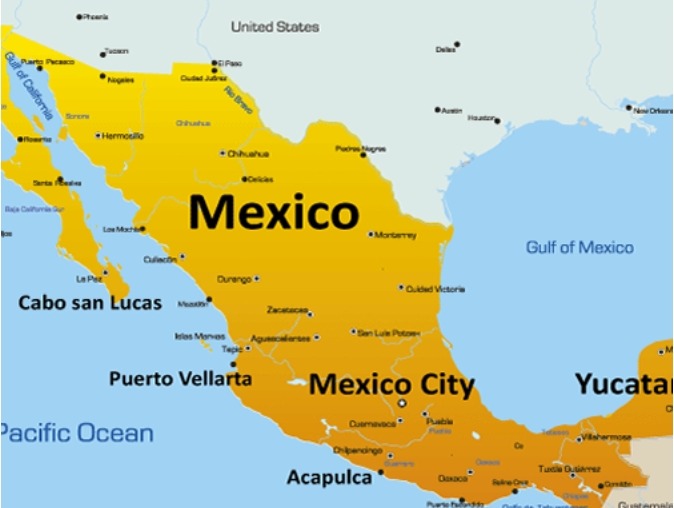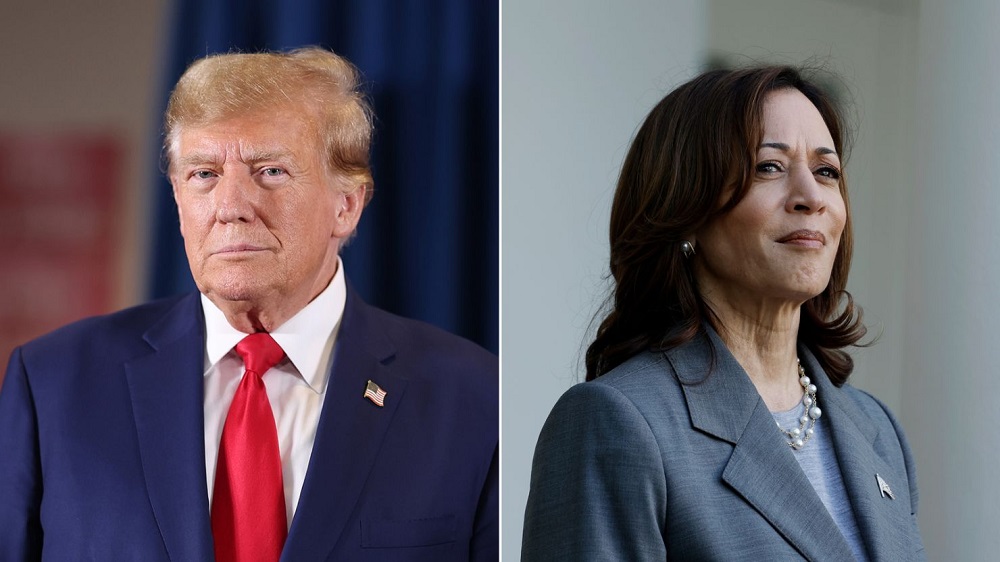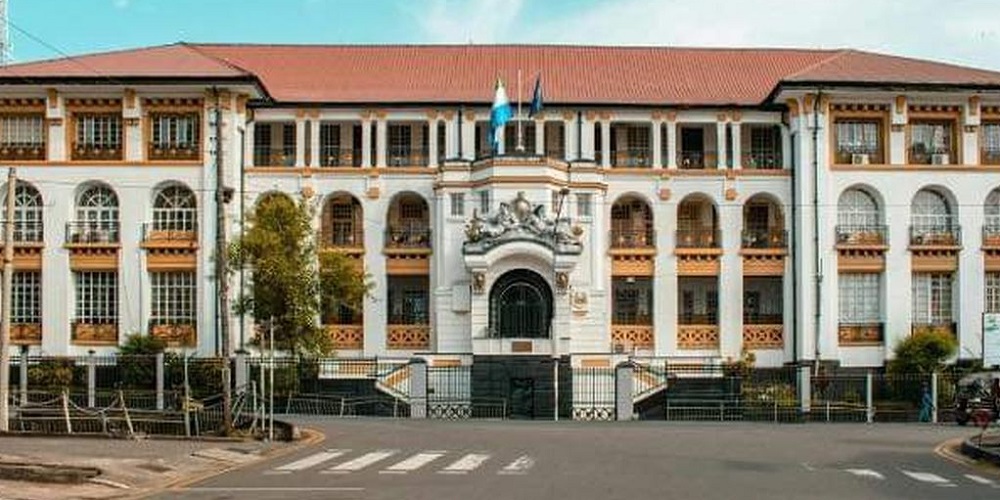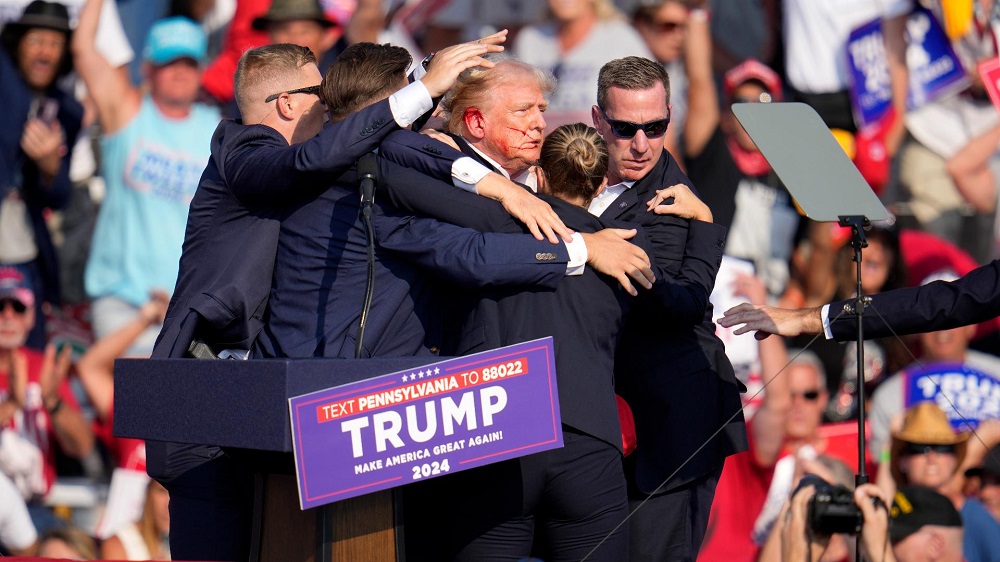Foreign
Mexico Election Mounts Centre Stage As Two Women Vie For Presidency

Campaigning officially began Friday for elections likely to produce Mexico’s first woman president – a watershed for a nation with a long tradition of macho culture.
Opposition candidate, Xochitl Galvez, launched her campaign after the stroke of midnight in one of Mexico’s most dangerous states, seeking to tap into voter concerns about the country’s rampant violence.
Public opinion polls suggest that she faces a tough battle against ruling party candidate, Claudia Sheinbaum, a former Mexico City mayor and close ally of outgoing President Andres Manuel Lopez Obrador, known by his initials AMLO.
With three months to go before the June 2 vote, Sheinbaum, a 61-year-old scientist by training, enjoys a significant lead with 63 per cent support, according to an average of polls compiled by the Oraculus research firm.
Galvez, also 61, has 31 per cent support, while Jorge Alvarez, 38, of the Citizens’ Movement party is a distant third with just five per cent, polls show.
At stake is the future of Latin America’s second-largest economy, a country of 126 million people that is a key trading partner of the United States and a major tourist destination, but which faces huge challenges from illegal migration and drug-related violence.
Galvez, an outspoken businesswoman with Indigenous roots, sought to put the focus on the country’s insecurity with a night-time rally in the city of Fresnillo in the violence-wracked central state of Zacatecas.
She led a candle-lit march through the streets before sharing the stage with a relative of one of Mexico’s more than 100,000 missing persons, holding a minute’s silence for victims of violence.
“Here in Fresnillo, as in all of Mexico, people are afraid,” Galvez said, hitting out at Lopez Obrador’s “hugs not bullets” strategy to tackle violent crime at its roots by combating poverty and inequality, rather than using military force.
“Hugs for criminals are over,” she said.
“To have a Mexico without fear, we’re going to restrain the most violent and aggressive criminal organizations in our country,” she added.
It was the first of several planned stops in cities considered by their residents to be among the most unsafe in Mexico, to highlight what Galvez says is the government’s failure to tackle spiraling violence.
Nearly 450,000 people have been murdered across Mexico since 2006 when then-president Felipe Calderon launched a controversial anti-drug military campaign, according to official figures.
‘Formidable party machinery’
Sheinbaum is a staunch supporter and confidant of Lopez Obrador, a leftwing populist who enjoys an approval rating of nearly 70 per cent according to Oraculus, but who is required by the constitution to leave office after one term.
The granddaughter of Bulgarian and Lithuanian Jewish migrants, Sheinbaum has vowed to continue Lopez Obrador’s policy agenda.
“Sheinbaum is in a very strong position, with a significant lead in the polls over Galvez,” analyst Michael Shifter of the Inter-American Dialogue think tank in Washington told AFP.
“Although nothing is impossible in politics, with just over three months to go before the election, it is highly unlikely that Galvez will be able to gain enough ground to make it a competitive race. AMLO is too popular, and the government and party machinery is too formidable,” he added.
Sheinbaum is due to address supporters on Friday afternoon in Mexico City’s main square, the heart of the city she governed from 2018 until last year when she stepped down to run for president.
On the eve of her campaign launch, Sheinbaum said that her opponents were “looking for a way to rise in the polls, but there is no way they can do it because we represent the future, and they represent the past.”
Galvez represents an opposition coalition made up of the Institutional Revolutionary Party – which ruled the country for more than 70 years until 2000 – the conservative National Action Party and the leftist Party of the Democratic Revolution.
But her background sets her apart from the traditional conservative opposition – she wears Indigenous clothing, uses colloquial language peppered with swear words and is known for travelling around Mexico City by bicycle.
Foreign
Trump kicks against Harris taking over Biden campaign funds

Republican presidential candidate Donald Trump’s campaign, on Tuesday, filed a complaint with the Federal Election Commission, saying that U.S. Vice President Kamala Harris could not legally take over funds raised by President Joe Biden’s reelection campaign.
Biden, an 81-year-old Democrat who was in a tight race with Republican challenger Donald Trump, endorsed Harris when he ended his reelection bid on Sunday.
Harris quickly took control of Biden’s campaign accounts and on Monday night wrapped up the nomination by winning pledges from a majority of the delegates who at next month’s party convention will determine the nominee, according to her campaign.
The fight over the accounts, which had roughly $95 million in the bank at the end of June, is part of a multi-pronged effort by Republicans to stymie Harris’ bid to lead the Democratic ticket.
The Trump campaign argued that Harris undertook a “brazen money grab,” according to the filing by David Warrington, the campaign’s general counsel. In the filing, which Reuters said it saw, Warrington said Harris was in the process of committing what he described as the “the largest campaign finance violation in American history.”
Saurav Ghosh, a lawyer at the Campaign Legal Center, a non-partisan watchdog group, has said that because Harris was already part of “Biden for President” as the vice presidential candidate, her claim on the money should be secure.
In any case, election regulators are unlikely to resolve the issue before the Nov. 5 presidential election.
The FEC said they were unable to comment on unresolved enforcement matters.
U.S. Vice President Kamala Harris laid out her argument against Donald Trump at the first rally of her presidential campaign on Tuesday, while a new poll showed her with a slight lead over her Republican rival.
Harris’ campaign has said it had raised $100 million since Sunday, when Biden stepped back from the campaign and endorsed her – exceeding Biden’s remaining tally in just a few days. Her campaign brushed off the FEC complaint.
“Republicans may be jealous that Democrats are energized to defeat Donald Trump and his MAGA allies, but baseless legal claims – like the ones they’ve made for years to try to suppress votes and steal elections – will only distract them while we sign up volunteers, talk to voters, and win this election,” said Harris campaign spokesperson Charles Kretchmer Lutvak.
Foreign
Sierra Leone Court Sentences 11 Soldiers, Policemen For Failed Military Coup

Two female police officers were also sentenced. Ramatu Kamanda Conteh received a 30-year sentence for harboring Koita.
Ahigh court in Sierra Leone has sentenced 11 people, including soldiers and police officers, to lengthy prison terms for their role in a failed military coup attempt last year.
The court’s verdict follows an attack on November 26, 2023, when gunmen targeted multiple military barracks and a prison, freeing about 2,200 inmates and killing over 20 people.
Reuters reports that, after the failed coup attempt, 12 people were charged with treason in January.
However, on Monday, 11 people were convicted in a unanimous jury verdict on 20 counts, including treason, murder, and unauthorized use of military uniforms.
The twelfth accused, Bai Mahmoud Bangura of the opposition All People’s Congress (APC) party, is being tried separately due to health concerns.
Amadu Koita Makalo, a retired army major and former bodyguard to ex-president Ernest Bai Koroma, was sentenced to multiple terms totaling 40 to 70 years in prison, with the sentences to be served concurrently.
Two female police officers were also sentenced. Ramatu Kamanda Conteh received a 30-year sentence for harboring Koita.
The government said the coup bid was led mostly by bodyguards to Koroma, who was later charged with four related offences, before the government decided to let him leave the country on medical grounds.
However, Koroma condemned the coup attempt and his lawyers called the charges “trumped up” and part of a “political vendetta”.
Tensions have resurfaced in Sierra Leone, nearly two decades after the civil war from 1991 to 2002 that claimed over 50,000 lives.
Foreign
Trump Shooter Searched Online For Info On John F. Kennedy Assassination A Week Before Rally, FBI Says

Despite gaining access to Crooks’ electronic devices, including his cellphone, investigators have yet to uncover any significant information regarding his motive or ideology.
FBI Director Christopher Wray revealed during a House Judiciary Committee hearing on Wednesday that the gunman who attempted to assassinate former President Donald Trump at a Pennsylvania rally on July 13 had conducted a disturbing Google search about the assassination of President John F. Kennedy just one week prior to the shooting.
The FBI said it was still working to determine the motive behind 20-year-old Thomas Crooks’ actions, which resulted in the death of one attendee and injuries to Trump and two others, CBS News reports.
Despite gaining access to Crooks’ electronic devices, including his cellphone, investigators have yet to uncover any significant information regarding his motive or ideology.
Wray’s testimony highlighted the complexity of the case, as authorities strive to understand the reasoning behind Crooks’ violent actions. The investigation remains ongoing, with the FBI exploring all possible leads to shed light on this disturbing incident.
A chilling discovery was made on a laptop linked to Crooks. A search history revealed a disturbing query made on July 6, exactly one week before the Pennsylvania rally: “how far away was Oswald from Kennedy?”
This eerie search suggests Crooks may have been drawing inspiration from the infamous assassination of President John F. Kennedy by Lee Harvey Oswald in 1963.
Oswald fatally shot Kennedy from a sixth-floor perch at the Texas Schoolbook Depository in Dallas, with the Warren Commission later determining the distance between the two to be approximately 265.3 feet at the time of the deadly shot.
This striking search term stands out as a significant finding in the investigation, potentially offering a glimpse into Crooks’ motivations or mindset leading up to the attack. As authorities continue to probe the circumstances surrounding the shooting, this haunting query raises more questions about the influences and intentions behind Crooks’ actions.
Crooks fired shots from a rooftop approximately 400 feet away from the target.
The gunfire struck Trump in the ear and injured rally attendees.
According to FBI Director Christopher Wray’s testimony at Wednesday’s hearing, Crooks wielded an AR-style rifle and left behind a trail of evidence, including eight spent bullet cartridges found on the roof.
-

 News20 hours ago
News20 hours agoIwuanyanwu was a Heavyweight in all ramifications-Abaribe
-

 News19 hours ago
News19 hours agoTinubu, Southern Govs Mourn Iwuanyanwu
-

 News19 hours ago
News19 hours agoSokoto Governor, Aliyu’s Wife Holds Lavish Birthday As Guests Spray Dollar Notes On Her Amid Hunger, Hardship
-

 News15 hours ago
News15 hours agoNationwide protest: ‘Airport Is Filled Up, Govs, Senators, Reps, Ministers Traveling Abroad’ — Fayose
-

 News20 hours ago
News20 hours agoIGP Orders DPOs, Their Men To Storm Vulcanizer Shops Ahead Of Planned Nationwide Protest
-

 News19 hours ago
News19 hours agoProtest: President Tinubu In Closed-door Meeting With Traditional Rulers (Video)
-

 News20 hours ago
News20 hours agoTinubu’s Presidency Is Failing Nigerians – Afenifere
-

 Metro19 hours ago
Metro19 hours ago8 School Children Rescued In Lokoja Auto Crash







